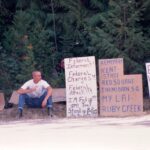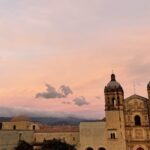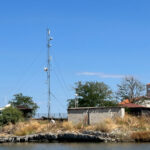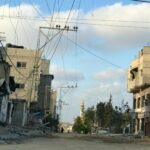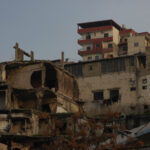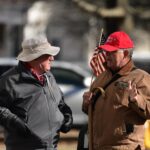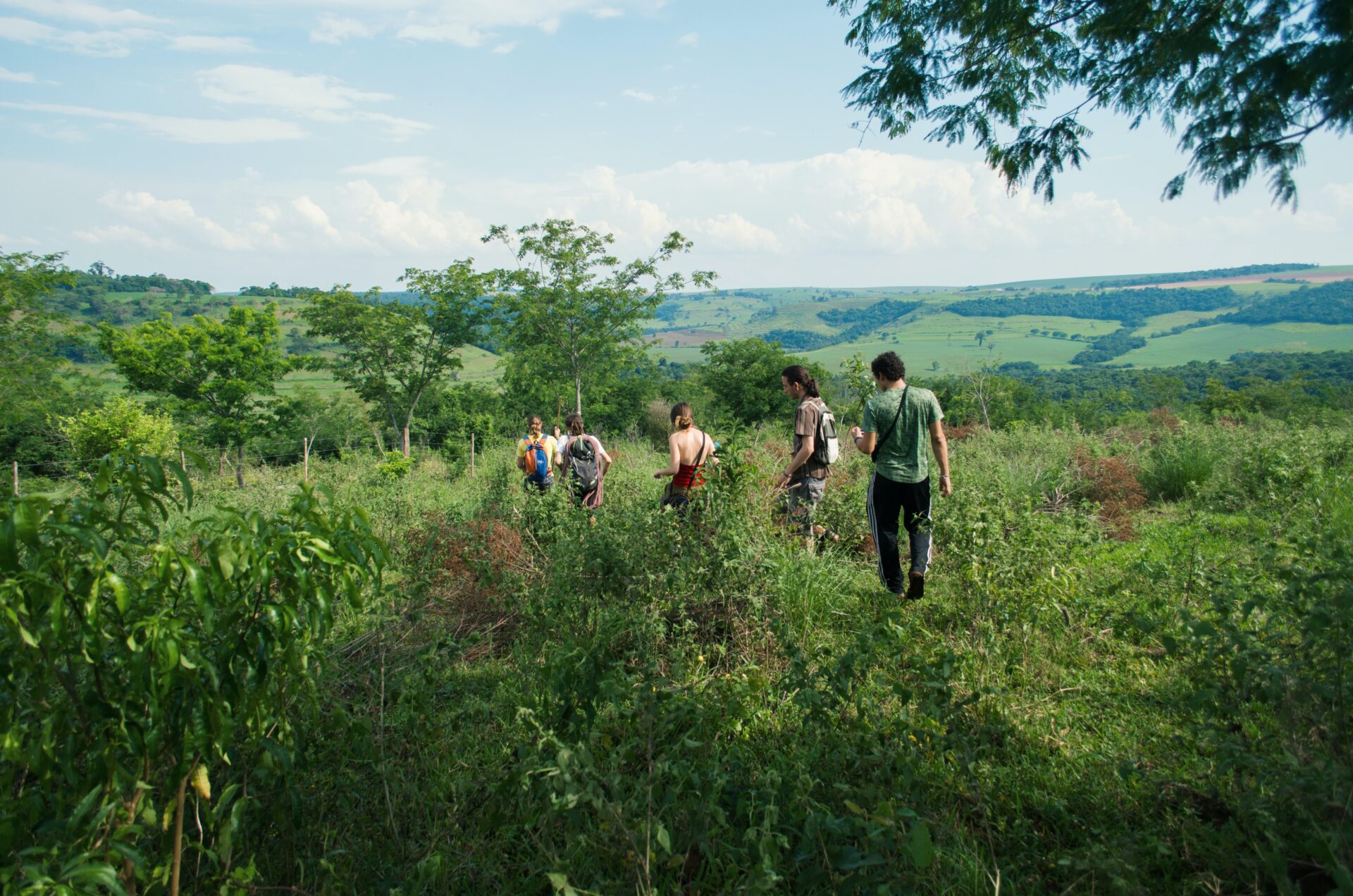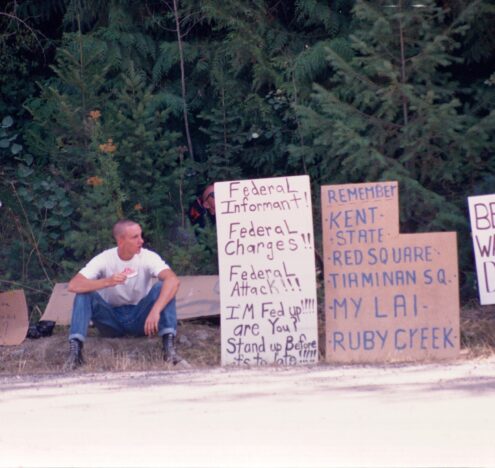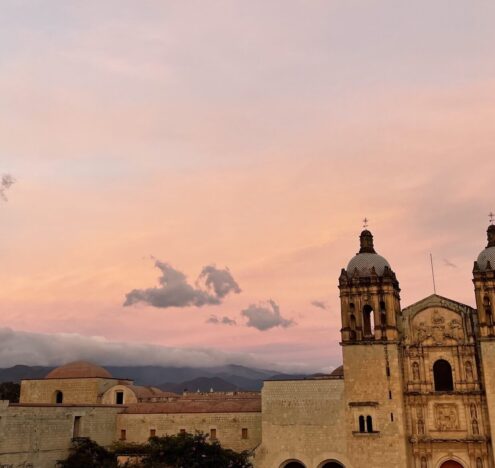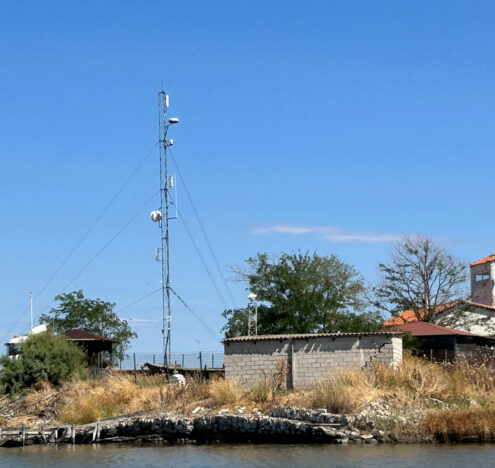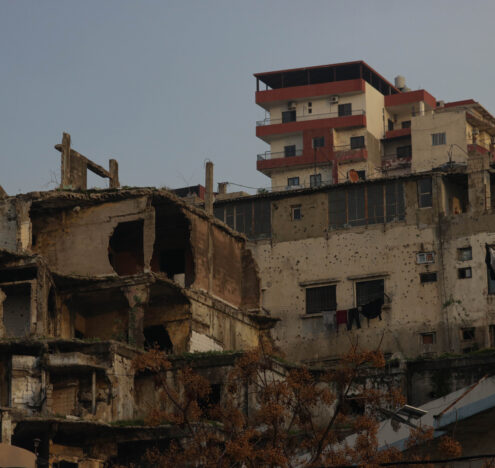Just a few days before the first round of Brazil’s most recent elections, Alexandre Pires was dancing with fellow progressives. Hundreds of people, many wearing red shirts, a nod to Brazil’s Workers’ Party, had gathered inside the gates of the May 13th Park in central Recife, banners unfurled and flags waving.
Pires, who had been campaigning throughout the inland rural communities he had worked with on family farm issues for some two decades, was feeling upbeat. Those hopes ended up dashed, however, when voters opted not to send Pires to the state legislature. Instead, he returned to being a coordinator for the Centro Sabiá, which supports family farms by teaching and supporting an agroecology approach to farming. Sabiá can refer to a common bird that resembles a robin and to a fruit-bearing tree indigenous to the country’s northeastern Caatinga forest, a scrubby environment adapted to scant rainfall.
Having grown up on a small family farm in northeastern Brazil’s semi-arid region, Pires’ commitment stems from his own roots.
“Like all children of the Sertão, my childhood was very limited in terms of access to certain things, but it was also very free in terms of being able to play in and live in the inland towns,” Pires said in a cavernous room in Centro Sabiá’s office in central Recife, just a few days had passed since the first round of the presidential election in October 2022.
Recife, the capital of the northeastern state of Pernambuco, hugs the coast and attracts people from across the region to its job opportunities and thriving cultural scene. For rural residents like Pires, the city offers hope of a better, less physically-demanding life. In a region plagued by drought, poverty, and “coronelismo,” a system of agrarian oligarchy where large landowners control both local economies and politics, a city like Recife can appear like a beacon.
Moving to Recife
Pires’ family owned a small general store in the town of Jabitacá, some 240 miles from Recife. Pires’ father had no illusions about what the best path was for his sons. At the time, the Catholic Church was a powerful progressive force in the region, and Pires recalls how a local bishop stood up to the local landowners who benefitted from state-financed construction projects on their land while the community members who did the work were paid a pittance.
“When I finished primary school, my parents and one of my aunts, who was a teacher, wanted us to study because they didn’t want us to be farmers,” Pires recalls. “Because a farmer’s life, especially in the semi-arid region, was always a really difficult life, a really hard one. The lack of water, of public policies, of programs that could support agriculture.”
“I very much discovered myself in this work of popular education, of caring for, dealing with, and valuing the farmers’ knowledge and wisdom. It was a massive education,” Alexandre Pires acknowledged.
His aunt Lina, who lived with Pires and his parents and siblings, paid his private school tuition from her teaching salary. She was the first female town council member elected in their community, and Pires says she was harassed and received death threats because of her progressive political views and support for rural workers. His father also became a council member.
And so, at age 14, Pires packed his bag and moved in with relatives in Recife. And while the school he attended offered Pires an excellent education, it also exposed him to a different world.
“When I migrated to Recife, I went through a really difficult period because I felt very excluded. I studied in a private high school where the students were rich — and I wasn’t rich,” Pires says. “So, I closed myself off a lot to relationships.”
But class wasn’t the only issue. Pires had also realized that he was gay.
“I was afraid about my sexuality, and I was wary of going to ranches or wealthy apartments in Recife because my reality was another,” he said.
Once he finished secondary school, Pires threw himself into earning a living however he could.
“I sold clothes, food, I made hand-crafted cards to get by until I entered the university in ’97, and I began to work in more formal jobs on the books.”
Becoming an Activist
Pires was 10 years old when Brazil’s dictatorship fell in 1985, and the country returned to a democratic system. He entered the university as Brazil’s government was implementing significant measures to control inflation and stabilize consumer prices. In the university, he studied biology and began engaging in student activism around environmental issues.
“This thing of cutting down trees has always generated a lot of indignation for me,” Pires said. “We would question the university on garbage, on the sewers within the university; we would challenge the city on issues related to the mangrove swamps.”
Recife faces the ocean and the two rivers that empty into the Atlantic there are lined with mangrove swamps, providing habitat for birds like egrets as well as crabs and other animals. Sewer systems are lacking in many Brazilian cities and towns, and only half of Recife’s residents are connected to the city’s sewers.
In 2002, a few years after graduating, Pires found his way to the Centro Sabiá after funding cuts put him out of his job with a union. Sabiá had been founded some ten years earlier with a goal of protecting and nurturing agroforestry systems, which, Pires says, was very unusual at the time.
The UN’s Food and Agriculture Organization defines agroecology as:
“A holistic and integrated approach that simultaneously applies ecological and social concepts and principles to the design and management of sustainable agriculture and food systems. It seeks to optimize the interactions between plants, animals, humans and the environment while also addressing the need for socially equitable food systems within which people can exercise choice over what they eat and how and where it is produced.”
Agroecology offers a production strategy that enables small farmers in northeastern Brazil’s semi-arid region to survive through droughts half the without rain. Concentrated in the northeastern part of the country, the semi-arid region covers roughly 12% of Brazil’s land mass.
During the dry season, a drive inland from Recife will show the landscape changing from the lush green of the coastal forest region to scraggly, leafless trees and gray-ish brown grasses. But usually, in April, the rains wash away dust from the trees and green leaves while shoots emerge from the ground.
In this context, cisterns to capture and hold rainwater are the difference between the ability to sustain oneself and the opportunity to support crops and a few animals. Cisterns are one of the tools the Centro Sabiá and partner organizations like the Articulação Semiárido Brasileiro (ASA) use to help farmers develop their operations in these challenging conditions, but so are strategies like planting cover crops like beans and feeding cactus to livestock. Pires participated in ASA’s Executive Coordinating Committee between 2015 and 2021.
In spite of his experience studying conservation and pushing for environmental justice, the latter techniques were new to Pires. “I was unfamiliar with agroecology. We didn’t study agroecology at the university,” he acknowledged.
That first contract Pires landed with the Centro Sabiá was slated for just six months. And right away, the organization and shipped him back to the Sertão to provide technical assistance to small-holding farmers. But before he could begin work, Sabiá sent Pires to live for a month with two different farm families in the semi-arid Sertão and the less arid Agreste region. These stays helped him settle in, connect with people, and begin to understand the community’s dynamics and experiences.
“Even though I was the son of farmers, I didn’t know how to deal with this [culture] as an adult,” Pires said. Learning curve or not, the new job evoked something profound. “I very much discovered myself in this work of popular education, of caring for, dealing with, and valuing the farmers’ knowledge and wisdom. It was a massive education,” Pires acknowledged.
Pires remained in the state’s interior for three years. During that time, he was hired on permanently and found himself connecting deeply with the people Sabiá served and the work it was doing to promote sustainable paths for small-scale farms.
Supporting Family Farms
Recife’s first farmers’ market was held in 1997 as a demonstration of the produce that local farmers were growing. Pires said that using the agroecology techniques that the Centro Sabiá had been sharing for four years, not only were the farmers feeding themselves, they had extra produce to sell — and everything sold out. Now the city hosts 50 farmers’ markets each week, and nearly a hundred more serve smaller communities across the state. One weekend market in the well-off Casa Forte neighborhood sees farmers take a bus to the square where they set out their stalls, but the farmers themselves pay for this bus, Pires says.
“Farmers perform a role and carry out a task by bringing food to the cities, but the state doesn’t recognize this as far as public policy goes,” Pires said. “Of course, the state can’t subsidize everything,” he acknowledged, “but it’s important to have some support.”
Pires sees these markets as an educational opportunity for city dwellers, as well as providing a source of healthy food. Since the produce available varies by season, Pires says, shoppers are faced with the reality that growing in accordance with local conditions means things like mangoes only appear at certain times of the year.
But there’s another surprising aspect to this story. A study the Centro Sabiá undertook with the Federal Institute of Pernambuco, a public, highly competitive high school focused on science and technology, compared 17 “traditionally” grown products in five large supermarket chains with the cost of those same products at the farmers’ markets.
“Agroecological products were cheaper or the same price as equivalent products in grocery stores and ordinary markets,” Pires said. This was true in the state’s interior near the farms that grow these products. In the city, Pires acknowledged, the cost of transportation can make them slightly more expensive, but he said the cost is “substantially lower than the [cost] of organics sold in supermarkets.”
Still, Pires says these markets aren’t serving the city’s low-income neighborhoods, which suffer from higher rates of health issues like high blood pressure and obesity. Around 2014 Centro Sabiá drafted a proposal to place farmers’ markets in locations around the city where there were outdoor fitness equipment sets that help low-income residents work out without shouldering the cost of a gym membership.
“The Ministry [of Health] didn’t fund it, the administration changed, and that’s it,” he said.
Since then, Brazil’s economy has slowed, inflation has grown, and some anti-hunger measures have been dismantled — including government purchases of small-farm produce — leaving some 33 million Brazilians hungry. In Pernambuco alone, Pires said, there were half a million people experiencing food insecurity and hunger in 2022, but a September report from a food-focused research group put that figure four times higher – at 2.1 million.
“This group of public policies: the program of food purchasing; the national program of school food, which changed the law in 2009 to purchase at least 30% of its supply from family farms; the cistern program, that brought water to the semi-arid population and with it the ability to grow; the national policy of agroecology and organic production, and the national policy of technical assistance and rural extension — all of these policies were simply gutted by the Bolosonaro government,” Pires said. “This means that since farmers don’t have a market, so they can’t produce.”
Meanwhile, the COVID crisis hit while the economic situation worsened along with a turbulent political scenario.
In this context, Pires ran for the Pernambuco state legislature in 2022, highlighting the need for state policies to support family farms. “There’s an absence of a political strategy that values peasant farming, that values family farms,” Pires said. “With the exception of my campaign, all the others neglected the role of family agriculture. When that happens, there’s an emptying of rural communities,” he affirmed.
“So, what my father told me when I was 14 years old, that he wanted me to study outside because there was no future in agriculture; today we’re living through the same reality,” he said.
“Governments don’t value family farms. Governments value agribusiness, big producers, big industries,” Pires said, describing how young people, instead of focusing on small holding farms, tend to look to agribusiness for work opportunities. At the same time, he says, people have lost faith in politics, and so they focus on the now.
“There’s a historic movement in Brazil, from the right and the extreme right, to put [money and faith] in place of politics,” Pires said. “Discussing politics in this broader context of what the problems are and how to solve them, what bills and public policies can help solve these problems, there’s no belief in this anymore. People don’t believe in politics,” he concluded as a result of his campaign experience in which he lost his bid to enter the state legislature.
In spite of that, in March 2023, Pires was offered a position within President Lula da Silva’s government. Now, Pires is the director of efforts to prevent desertification within the Ministry of Environment and Climate Change. Pires’ name was proposed by ASA, which has long worked on ensuring access to water in Brazil’s semi-arid region.
“The Minister [Marina Silva] recognizes ASA’s civil society network that focuses on this issue, but that does so in a humanized way. So, it’s not just about recovering the physical environment but about recovering the environment where people live, where people are living with all of their socially productive and reproductive projects. So, I feel very honored — and of course challenged as well — by the invitation,” Pires said.


